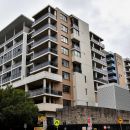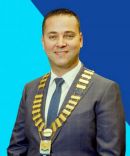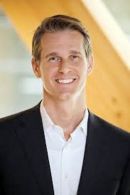| Middle East |
| UN meet opens new era of peace |
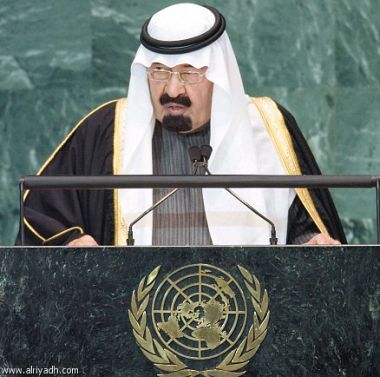 |
A special UN General Assembly session on cultural and interfaith dialogue opens at the United Nations headquarters in Organized at the initiative of Custodian of the Two Holy Mosques King Abdullah, the conference is expected to usher in a new era of peace and prosperity in the world. UN Chief UN Secretary General Ban Ki-moon said “The interfaith dialogue is meant to deepen understanding and appreciation of religions, faiths and cultures, which will help create a favorable environment for the resolution of political issues.” Ban Ki-moon warned world leaders that globalization has increased communal strife, extremist ideologies and the polarization of societies. "Anti-Semitism remains a scourge," he said. "Islamophobia has emerged as a new term for an old and terrible form of prejudice. And other kinds of racism and discrimination show a dismaying persistence." "One of the great challenges of our time must now surely be to ensure that our rich cultural diversity makes us more secure - not less," Ban said. President of the General Assembly In the opening speech, president of the General Assembly, Miguel d'Escoto Brockmann, warned that the world desperately needs to learn the positive lessons of religion. D'Escoto, a Catholic priest, said all religions included "social responsibility," but that the world has "become contaminated by the spirit of selfishness and individualism." His attack on the "unbridled greed" of the "dominant" Western culture was likely to strike a chord among some leaders at the conference. "It is not only Wall Street that needs to be bailed out," he said. "We need to bail out all of humankind from its social insensitivity." Dialogue is no stranger to Islam - King Abdullah King Abdullah of "Our concern for the dialogue stems from our Islamic faith and values, and our compassion for the human condition, in order to overcome its miseries," he said in his two-page speech. He noted that every tragedy suffered in today's world is ultimately a result of the abandonment of the paramount principle enunciated by all religions and cultures: the roots of all global crises can be found in human denial of the eternal principle of justice. "Terrorism and criminality are the enemies of every religion and every civilization. They would not have appeared except for the absence of the principle of tolerance," he added. It is "high time for us to learn from the harsh lessons of the past and concur on the ethics and ideals in which we all believe, Matters on which we differ will be decided by our Omniscient Creator on the Day of Judgment. "We will continue what we have commenced, extending our hand to all those advocating peace, justice and tolerance," he said. President Sleiman says trust is key to fruitful dialogue Lebanese President Michel Sleiman said that dialogue cannot lead to a solution if it is not built on a relationship of trust. Sleiman was delivering " He added that His Highness the Amir of Kuwait Sheikh Sabah Al-Ahmad Al-Jaber Al-Sabah called on leaders of the world to embark on dialogue between people, religions and cultures to address numerous challenges like terrorism, drugs and discrimination. "As leaders and peoples, we must assume our historical responsibilities to carefully examine our painful reality through a serious and sincere dialogue between people, religions and cultures," Sheikh Sabah said in a speech before a high-level UN General Assembly (UNGA) meeting on Culture and Dialogue between Religions and Cultures here. "We should focus our efforts on consolidating the true religious and moral values, and on the common just principles which all religions call for, and from which all cultures advance, to become a meeting point for us which would join us together for the good and provide us with a basis and a common factor of cooperation and peace," he said. Sheikh Sabah underlined that "we are required to transform the culture of the world from a culture of hatred, fanaticism and war to a culture of dialogue and coexistence, factually and conceptually." Dialogue, said the Amir of Kuwait, means interacting positively without complexes or fear. The Amir said " Government agencies in Peres praises Saudi initiative for peace Israeli President Shimon Peres told the UN General Assembly on its first day of a high-level meeting on Dialogue for Peace that the Saudi Peace Initiative is not impossible to achieve. "We cannot change the past. However, we can shape our future. This seems more feasible today in light of the Saudi proposal which evolved into an Arab peace initiative," he said and hoped the dialogue would be embraced by all leaders in the whole region. Unlike in the past, no Arab delegation walked out when Peres spoke and Peres was in the hall when the King addressed the assembly earlier. The Saudi-Arab "initiative's portrayal of our region's future provides hope to the people and inspires confidence in the nations. YES in order to change the world we have to change ourselves." He said He added that the other provisions of the initiative, are "inspirational and promising a serious opening for real progress." "Today we are making progress with the negotiations with the Palestinians; we are exploring the possibility of real peace with the Syrians, the last in the list of the historic conflicts," he noted. Qatar s Prime Minister and Foreign Minister H.E Sheikh Hamad bin Jassem bin Jabor al Thani said: “Allow me at the outset to convey to you the greetings of His Highness Sheikh Hamad bin Khalifa al Thani, the beloved Emir of our country, and His Highness' sincere appreciation to the Custodian of the Two Holy Mosques, King Abdullah bin Abdulaziz al Saud of the Kingdom of Saudi Arabia, for his kind invitation to convene a high-level meeting of the General Assembly of the United Nations on inter-religious dialogue. Dialogue among cultures, civilizations and religions has been one of the most prominent issues in the recommendations of the Outcome Document of the 2005 World Summit in which we have unanimously agreed that furthering the relations among nations is the only means to avoid misunderstandings and the appropriate way to fight extremism, for such an approach ensures the establishment of a just and lasting peace for mankind. Dialogue has become a central policy pillar at the national, regional and international levels for achieving peace and sustainable development. The values of tolerance and respect for various religions and cultures have thus become the foundation of the State of Qatar policy that respects and is guided by the tolerant Islamic Sharia. The State of Qatar views inter-religious and intercultural dialogue as a strategic choice that urgently requires the creation of an open space that ensures coexistence, peace and stability among peoples. As you may already know, we have been keen since 2003 on hosting the Doha Conference on Inter-religious Dialogue on an annual basis as a concrete expression of the importance of such choice. On the ground, we gave permission for the construction of places of worship for the followers of other monotheistic religions residing in the State of Qatar as a concrete expression of the principle of respect for the freedom of creed and worship called for by the tolerant Islamic Sharia. H.H Sheikh Hamad bin Mohammed Al Sharqi, UAE Supreme Council member and ruler of |
 |
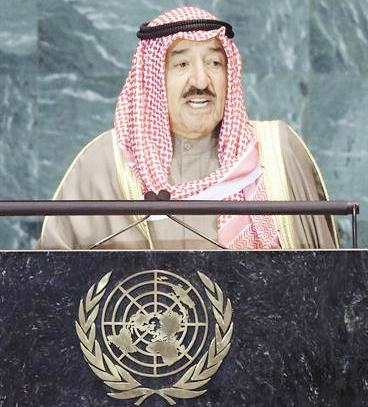 |
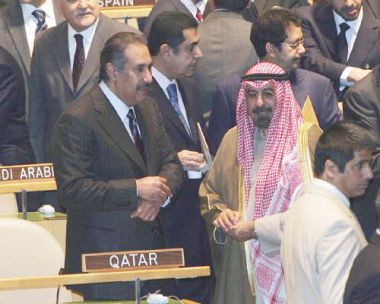 |
- Sultanate of Oman celebrates its 38th National Day
- Kuwait’s Amir Sheikh Sabah warned against undermining national unity
- President Sleiman’s visit to King Abdallah reaffirming Riyadh’s support for the process of conciliation in Lebanon
- Development march under Sheikh Khalifa the UAE President
- Prince Alwaleed a man for all titles
- Lebanese President hails Kuwait's support to his country
- Al Attiyah addressed a seminar on Dialogue in Spain
- Thousands of Christians flee violence in Iraq
- H.H Sheikha Mozah addresses a UNESCO Conference in Paris
- Prince Turki accuses US government of doublespeak




